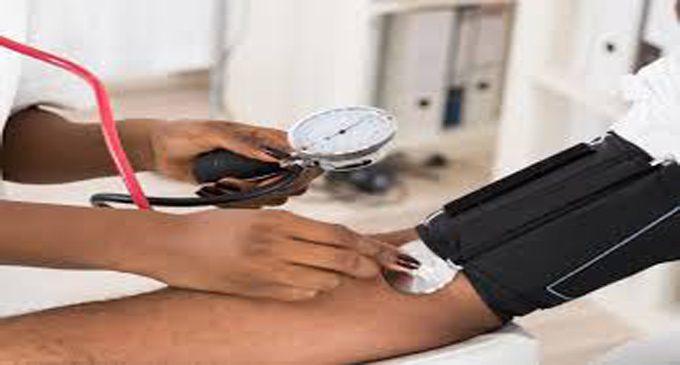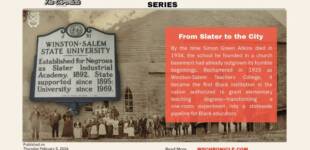Commentary: Research could open doors for African American women with disabilities

By John Ralley
Do you know what the largest minority group in our country is? People with disabilities. Don’t worry if you didn’t know. Most people don’t. People with disabilities are too often forgotten, misunderstood and stereotyped, especially African American women with disabilities. Drs. Keisha Rogers and Tammara Thomas of Winston-Salem State University hope their research will lead to strategies that will allow these women and their talents to thrive.
This issue is all the more important in these days of the COVID-19 pandemic.
Rogers is an assistant professor and Thomas is an associate professor in the Department of Rehabilitation Counseling at WSSU. As Fellows at the school’s Center for the Study of Economic Mobility, they will explore the hurdles to economic mobility for African American women with physical and mental health disabilities in Forsyth County. Their work, with student interns, will begin in earnest this summer, once, hopefully, the pandemic has passed. They plan to go into communities where these women live to interview them and collect survey information in an effort to better understand their views about obstacles to economic mobility.
Rogers and Thomas believe that the pandemic has underscored the barriers African American women with disabilities face, including the lack of access to the Internet, the lack of access to health care, and the lack of access to good jobs. These women who were already vulnerable are especially vulnerable now. For example, many assume everybody has access to the Internet, but really, it’s a luxury. It’s not something everyone has.
Then there is the search for necessities. Thomas shared that it has taken her days to find toilet paper, and she has all the resources she needs: the income, the cars, the family-support systems. These are things that people with disabilities do not necessarily have. Imagine how much more difficult it is for them.
For most of us, life will return to normal when the pandemic passes. The daily challenges will remain for those with disabilities. A person with a disability has it hard enough. The challenges mount when stigmas of race and gender are added to the equation. Economic mobility is a huge challenge. Thomas and Rogers wrote in their application for the CSEM fellowship that “Scholars agree that there is disparity in employment practices as it relates to the gap in pay that is clearly associated with gender and race. However, the link between poverty, gender, and disability has remained wholly underexplored.”
Employers may see disability as a disadvantage, and wrongly see people with disabilities as incapable of high productivity.
Thomas and Rogers say it is important to really sit down and have conversations with these women, to hear from them directly about problems and barriers and to work with them to develop solutions. They believe they will discover common barriers are still relevant such as healthcare, transportation, childcare, and education. Through their research, they feel they will uncover other hurdles this specific population faces in attaining economic mobility. They want answers to questions they posed in their application: “How does one’s disability, gender, and race/ethnicity impact the ability to advance economically? What unique local factors are at play that impact the economic mobility of African American women with disabilities in Forsyth County? What do we not know?”
These women might have some special circumstances that are unknown. For Thomas and Rogers, it is critical to help these women gain employment and begin generating wealth and stability so they aren’t starting from ground zero for their children and their children’s children. These women have a willingness to work, but because society has such a bias, Thomas and Rogers say, they’re effectively put into a box.
Then there is so much financial red tape, including that this vulnerable population can’t make over a certain amount of money without losing some public benefits.
Rogers and Thomas will present their research findings to the public. Policymakers might consider the findings as they address matters concerning people with disabilities. Thomas and Rogers say that, altogether, individual and systemic barriers produce disparities in competitive employment acquisition and upward mobility among their target population. Despite these impediments, they believe that it is possible, through innovative and collaborative efforts, that business, individuals and the government can be incentivized to embrace strategies to increase the upward mobility of the target population. This fits with CSEM’s “B.I.G. Idea” for community engagement.
The long-range plans of Rogers and Thomas include the development of a local incubator, a one-stop shop where women with disabilities can go for help in navigating complex systems, and garner support needed that will lead to suitable and gainful employment. The professors strongly believe that these women deserve not just jobs, but careers and are one with them in this effort.
John Railey is senior writer and community engagement consultant for CSEM. He can be reached at raileyjb@gmail.com. To learn more about CSEM, go to www.wssu.edu/csem.









